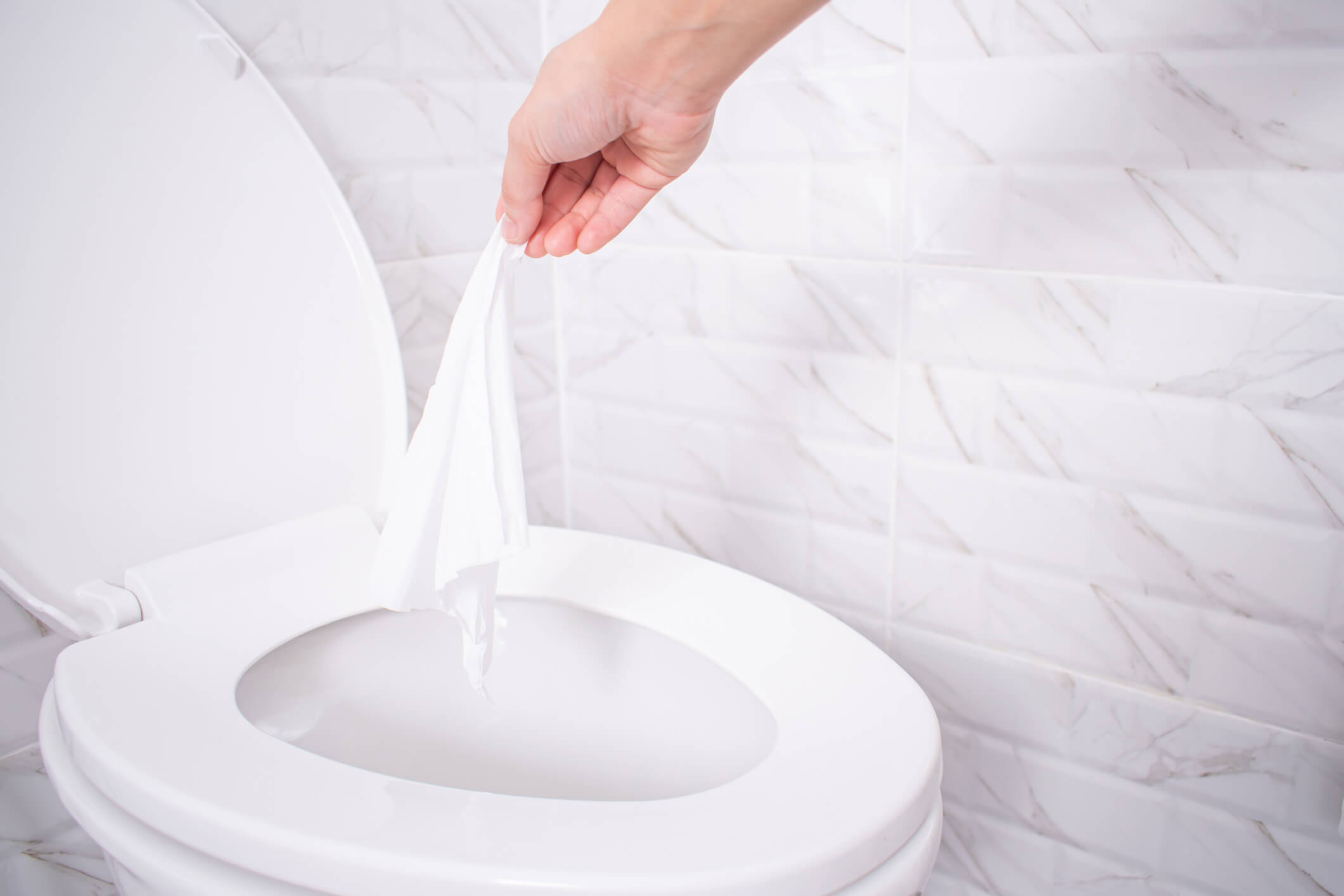
Toilet paper is specifically designed to dissolve in water. A few minutes of traveling down the sewer system is all it takes for the paper to start falling apart. This is good news for your plumbing and the municipal sewer system.
So what about “flushable” wipes? Are they really safe to flush? Learn why it’s best to stick to good old toilet paper—or toss those wipes in the trash when you’re done rather than flushing them down the toilet.
Wipes don’t disintegrate in water.
Plastic, polyester, and other synthetic materials help make wipes strong, but they prevent the wipes from breaking down in water. This means even though they technically disappear down the drain when you flush the toilet, wipes are more likely to clog your sewer line than regular toilet paper.
Clearing such a clog can take hours, even for a master plumber with professional equipment. The soggy clumps of blackened wipes that get dredged up during the drain cleaning process are not a pretty sight. Even less pretty are the sewer backups these wipes can cause.
Clogs don’t just occur close to home.
Some cities spend millions of dollars a year addressing damaged sewer systems and clearing out masses of solid waste—obstacles the industry calls “fatbergs.” Flushable wipes comprise about 90% of the average fatberg, which gets its name from the cooking oil and grease that holds it together. The time and money required to clear these obstructions could be put to better use elsewhere if everyone stopped flushing flushable wipes, baby wipes, facial tissues, and other “toilet paper alternatives.”
So, why are disposable wipes advertised as “flushable?”
Currently, companies label wipes as “flushable” simply because there’s no regulation preventing them from doing so. All this designation means is that the wipe will successfully leave the toilet bowl when you flush, but it has no bearing on the wipe’s ability to move through the sewage system.
A Canadian study tested 101 single-use wipes for flushability, and none of them passed. Clearly, this is a misleading marketing technique, and consumers need to be informed that flushable wipes damage the sewer system.
How can you keep your pipes clear?
Simply put, refrain from flushing anything besides human waste and toilet paper. All other wipes, tissues, and feminine hygiene products belong in the trash. When municipal sewer system workers clear out fatbergs, the contents of these massive obstructions end up in the landfill anyway, so there are no environmental benefits of flushing versus tossing in the trash.
Is your sewer line clogged? Whether flushable wipes, grease, or other foreign objects are to blame, Puget Sound Plumbing and Heating can help. We have over 20 years of experience providing sewer line and drain cleaning services in the Seattle area. We even offer around-the-clock emergency response for those times when your sewer backs up on the weekend or in the middle of the night. To schedule the services you need, please call us at (206) 938-3219 or contact us online today.


